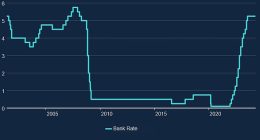
The owner of the Regal movie-theater chain won’t breathe easy even when it recovers from a bad case of long Covid.
Cineworld Group, CNWGY -4.00% the embattled London-listed company that bought Regal in 2018, is banking on consumers quickly returning toward pre-pandemic moviegoing habits this year. On Thursday, alongside reporting annual results, it laid out a base case for 2022 that involves its admissions rebounding to 85% of their 2019 level in the U.S. and 90% in the U.K., its two most important markets.
The company said this scenario would allow it to pass a June covenant test on its revolving credit facility. It might also give it a window to refinance expensive debt accumulated during the pandemic and potentially even to seek a U.S. listing to fix its debt-heavy capital structure.
Conversely, Cineworld said it would fail the covenant test under a “severe but plausible” scenario of admissions in April and May instead being 43% of 2019 levels. Given the risks, it is exploring additional sources of liquidity.
How realistic is Cineworld’s base case? Including both spending at the box office and on popcorn, soda and the like, the company’s revenue jumped to 90% of the 2019 total in October after the new James Bond film was released, but remained at just 64% as recently as February. So far in March the number is 86%, thanks to “The Batman.” So everything depends on the unpredictable question of whether coming blockbusters will be hits or flops.
Chief Executive and anchor shareholder Mooky Greidinger was upbeat about the prospects for the second quarter and a trio of blockbuster releases: “Doctor Strange in the Multiverse of Madness,” “Top Gun: Maverick” and “Jurassic World Dominion.” He wouldn’t have used his Israeli family business to mount takeovers of first Cineworld in the U.K. and then Regal without an optimistic outlook on life.
In any case, Cineworld stock, which has fallen back toward its pandemic lows over the past year, isn’t a straightforward reopening play for investors. Even if everything goes well, it faces a legal case out of proportion with its capital structure.
In December a Canadian court awarded 1.23 billion Canadian dollars, equivalent to roughly $1 billion, in damages to Cineplex for lost synergies after Cineworld called off its takeover. Mr. Greidinger had announced the deal in December 2019, shortly before the pandemic, and pulled out six months later as the scale of the crisis became clear, citing a “material adverse effect.”
Cineworld is appealing the judgment. Presumably the case will end in some kind of settlement: With a market value of less than $700 billion and almost $5 billion of debt, the company can’t possibly afford the scale of damages awarded to what it called an “unsecured creditor.” Still, the process could drag on for years, clouding the case for buying the stock. Even a far smaller payout could have a big impact on Cineworld’s market value.
Investors’ reluctance to buy back into the company even at today’s stock price, which equates to roughly two times 2019 profits, is understandable. Nail-biting courtroom drama makes for better movies than investments.
Write to Stephen Wilmot at [email protected]
Copyright ©2022 Dow Jones & Company, Inc. All Rights Reserved. 87990cbe856818d5eddac44c7b1cdeb8









